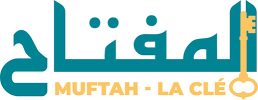Dossier prepared by Elisabeth Longuenesse
The COVID-19 pandemic has shed light on the state of health systems around the world. The way in which each country has (or has not) managed it, highlighted both the resources at its disposal, the dependence on pharmaceutical firms or foreign countries, the ability to mobilize the population, and the degree of coercion on society.
The neo-liberal shift of the 1990s-2000s, which affected the entire planet, by increasingly subjecting public services to the market, weakened health systems and made it harder for the most vulnerable populations to access health care. The unequal access to vaccines, due to the privatization of its production and the competition of pharmaceutical companies on the market, was a blatant illustration.
On the other hand, the pandemic has often been used as a pretext to stifle any contestation, from Algeria to China, while elsewhere, distrust of the State may have favored a rejection of preventive and vaccination measures.
This issue of Confluences aims to examine the state of health systems around the Mediterranean, in a comparative perspective, as health issues will have to be placed in their political, economic and social context.
According to the WHO definition, “Health is a state of complete physical, mental and social well-being and does not consist only in the absence of disease or infirmity”. It is also considered a fundamental human right for all.
For most of the decolonized states, expanding access to health and education was a powerful tool of legitimacy, while in the aftermath of World War II, many European countries were setting up social security systems, including health insurance and old age pensions, often associated with a policy to support the birth rate and families. These policies have enabled the development of a high-level hospital medicine, however dependent on increasingly expensive equipment, medical and pharmaceutical research, which remained the prerogative of Northern countries – slightly counterbalanced by the development of a pharmaceutical industry in a few Southern countries.
But neoliberal policies that became widespread from the 1990s favored a logic of financial profitability and the disengagement of the State, and gradually weakened public health services, benefiting a lucrative private sector. At the same time, the new expectations of large sections of the middle class, and a practice that can be described as consumerist, have fostered a growing distrust of a degraded public sector. A few Arab countries (Tunisia, Jordan, etc.) have seen the emergence of a high-end health services market, stimulating a new type of “medical tourism”.
In this context, while medicine remains the most prestigious profession, especially in Southern countries, paramedical professions are often devalued and in very insufficient numbers. This is also reflected in the massive use of foreign labor of Asian origin, in Egypt or the Middle East, while France began to import nurses from Spain or Lebanon, but also doctors from Romania, the Maghreb or the Middle East.
This issue of Confluences Méditerranée aims to gather contributions addressing different aspects of the health situation in countries around the Mediterranean, of implemented policies and their impact, as well as the behavior and expectations of the populations, not to mention the situation and strategies of health professionals.
The following (non-exhaustive) points should be addressed:
- The role of the State, the status of the public health service, between preventive and curative logics
- Public hospital and private hospital, health market structure, medical tourism
- Health insurance systems, between social security and private insurance
- Health professions, training and structuring of professional markets
- Attitudes towards health, population expectations and strategies for accessing health services…
- International health cooperation
Monographs are welcome, as long as they are presented in the political, economic and social context of the country concerned.
***
Proposal should be sent before June 30th, le to :
elonguenesse[at]yahoo.fr
Final paper (around 4000 words) are expected for October 31th, 2023
Approximate date of publication: April 2024
Please find all the instructions on the botton below










